This wraps up three columns about a train ride across the middle of Africa, from the Tanzanian coast to the Zambian capital. Here is the first column, and here is the second. We’re just back home from this trip now, and I’ll resume CS&W’s regular schedule shortly. Thanks for indulging me while we’ve been on the road.
On the third day of our 42 hour train ride I lay in my bunk and studied clouds for a very, very long time. I thought how it must be, living in Zambia.
If I were one of the men the train passed at crossings, when the train was gone I’d stand up on my pedal, which was just a metal bar, and push down hard. My slack-chain bike would catch and grind out onto the orange mud, and I’d have to pedal with all my strength because the road had ruts, and behind my bicycle seat sat my sixteen year old country-girl wife, our baby strapped across her back.
Or while the train pushed its way past, if I were my country-girl wife I’d be squatting, sun blazing, already sweating through my sarong at seven in the morning side-by-side with my neighbor wives, panga-hacking into the brush to make way for a few more stalks of maize. Today’s goal, like most days, advance the bare ground another meter or two.
I thought about being in jail. I had low confidence that I would hold out for long against the man. I imagined submission would come relatively soon just like on this train, where I’d already resigned myself that they had complete control, they could say what they would about the timetable and it wouldn’t change a thing about how long it would reallt take to get there. There was nothing I could do to change it.
That third day involved a triumph of personal hygiene. I successfully changed my socks and underwear by breaking into the ‘compartment owner’s’ toilet. It usually stayed locked, but (see the last installment) I had a skeleton key.
Inside, unlike at the other end of the carriage, there was a sit down toilet where, if you sat on the closed top and were deft enough, you could finagle yourself out of your shoes, remove your socks, and then one leg at a time replace your underpants without being in contact with the wet floor. What helped a lot for this maneuver was, you had all day.
Yesterday I proclaimed the sun drenched Tanzanian town of Mbeya the most beautiful place along the entire line. It fairly gleamed in the sun, climbing the sides of a lovely valley, and they called it the Scotland of Africa. From Mbeya though, it took a long, long time, far too long, to travel just a hundred more kilometers, such that while Mbeya bathed in sunlight, midnight came and went at the border.
What had been a mere accretion of tardiness along the line cannonballed right off into the deep end at the border. And yet leaving Tanzania, the process of immigration at the border town of Tunduma was exactly the kind of thing you’d come to see.
Tunduma has border posts for both the Great North Road highway and the Tazara railway, a tarmac road connection to the more remote far western districts of Tanzania, and something close to 150,000 people. Still, immigration on the Tazara railway was carried out effectively without electricity. This was the Tanzanian border with Zambia in March, 2023.
I had a bicycle cable and a little padlock with which I bolted our things to one of the upper bunks. This would merely slow down a tentative thief and not even remotely stop a determined one. After all, all the zippers on the bags remained unsecured. I only reckoned that in the event, having the bags tied down would deter someone just trying a quick grab and run.
Andrew, our self-described ‘compartment owner,’ had changed along with all the other employees from his orange Tanzania uniform shirt to a dark colored windbreaker. He looked pretty sharp. Would he stay in the carriage and keep watch over our things? Andrew assured me he would indeed remain right here.
As it happened, though, like at previous stations, Tunduma’s concrete platform only extended so far from the station building, and not so far as our carriage. To hike to the station building required gentlemen and ladies alike to sort of dangle from the step below the carriage door, drop onto the ground and then walk through the weeds, or among the goods hawkers, or abandoned locomotive or tuk tuk parts (this varied from station to station).
This was an additional challenge at night because the Tunduma border station was unlit. A few high floodlights pointed down onto the platform, that’s true, but the platform was some distance away. In the end Andrew decided it best to walk everybody from his carriage down to the station, so he, like we, abandoned the car to any prospective thieves.
In the end there were none.
Our compartment’s border-crossing posse was small, just Andrew, Mirja and me and a bigger lady, who accepted help climbing off and back onto the train. We picked our way down the path until we came to the platform’s slab and then walked further in the darkness until a silhouetted shape asked, “departing?”
I think normally the correct reply to a shadowy figure loitering around a border in the dark would be “who the hell are you!?” In this case though, Andrew knew and introduced us to these men, who were the border officials.
We were departing, that was true, so the man who spoke said follow me, and took us into an open, unlit room, probably a waiting room during the day, to do our departure paperwork. This was a big, airy space with open windows. Not at all confining. Just dark.
A couple of other officials stood inside around a small table, and there was one pen among the seven of us. It belonged to one of the officials who let us borrow it but kept it closely in his sight because it was important that he shouldn’t lose the border post’s pen.
The only light filtered in from the floodlit platform and the departure cards were very small, but I had my flashlight and one of the officials had one, too. I did Mirja’s and my forms, the bigger lady borrowed the station’s pen, I aimed the light on her card, and in due course everything got done with goodwill and broad smiles.
Two men came up behind from another carriage, so the officials bid us a good trip and turned their attention to them as we picked our way back through the weeds, along the track, in the dark.
•
End of the line, past midnight a day later, the train ride is finished. Exit through a gate onto the other side of the platform, this time lit mostly by headlights. Beyond the headlights lies undefined darkness in the middle of the night, now in Zambia.
I wrote earlier about why the Tazara rail line doesn’t end at the Zambian capital of Lusaka as logic would suggest, but at Kapiri Mposhi, two hundred kilometers up the road. Now, at half past midnight, we need to negotiate that gap.
There is no queue of gleaming 4x4s welcoming us and our VISA cards onward to Lusaka, vying for our business with hot towels and offers of Sirius/XM on the juke. There are a few minibuses out there though, and a rabble of assorted sedans sort of fades into the darkness beyond them.
As soon as we walk through the gate and offer ourselves as customers, the offers begin with a man named Oswald who offers himself and his Toyota Corolla. It’s parked in the dark back up there somewhere, he says, and he assures us we can trust him. Now here we are, standing in the dark trying to evaluate the character of a slight man of indeterminate age silhouetted in the sharp glare of high beams.
I want to stop in the fresh air and gulp it down whole, to be still and breathe and savor the freedom of being off the train, to just stand in the uncloistered night. The whole prospect of piling out of the train and climbing right back in beside new strangers holds precious little appeal.
Only thing is, we don’t know how things work around here exactly, and we’re pretty sure we ought not lose our chance for a ride and be left on the concrete in the dark. Ought to act now.
How can we decide if Oswald is trustworthy or not? I opt to play the imperious hard bargainer, at least for my opening gambit. I’m the only one around here with a flashlight. We walk over to find his Corolla. I shine the light all over it and onto him. I have him open his doors. It looks a little battered inside. I have him turn on the engine. It starts.
Oswald shows us a photo ID that he says proves he’s trustworthy, he says it shows he works for the railroad. Civil engineering, he says.
The minibus drivers come recruiting and say ‘old car mister, come with us, nice new minibus.’ Oswald counters that minibuses can’t leave until ‘zero five.’ They can’t drive between 10:00 pm and 5:00 am because too many road accidents at night led to too many deaths and a driving ban, he says.
No! No sir, that is crazy sir, we are leaving now! says a minibus driver.
This drives Oswald crazy. He is lying! Oswald shouts.
If the minibuses really have to wait till five o’clock, we could (at least in theory) be in a hotel in Lusaka by the time they leave. The idea of sitting here until then drives me crazy.
Also I don’t fancy jamming into a minibus with twenty of my fellow unwashed train passengers.
Oswald wants a hundred bucks. Blind shot, we go with Oswald.
Oswald is mightily grateful, piles our things into the Corolla and we’re off, the minibus drivers still crawling the platform, recruiting from the emptying train.
We are grateful to be off the train, mind you, where you can roll your window down (which is not cracked or fogged with condensation, like many windows in the train) and breathe the night air. We are still mentally rocking and swaying a little from the train ride, and our lot is now with Oswald. It’s just that forty-five minutes later, we are still in Kapiri Mposhi.
We stop for gas. A customer to Lusaka, we now understand, is also a ticket to a full tank of gas. Here is a big, brightly lit station, deserted but for a woman standing in the lot. Oswald doesn’t pull up to the pump; instead he stops some distance from both the pump and the woman. He throws open the door, strides across the lot, there are protracted negotiations and he comes back, jumps in and drives off. No gas. We are puzzled.
Next gas station the process repeats except that here, Oswald pumps himself a little bit and then sets out for a third station. We begin to understand that what’s happening is, Oswald doesn’t have any money. He’s wheedling for what gas he can get on credit, a little bit at a time. The lady at the first station told him, nothing doing. The next lady, a relative softie standing in her own lot in the middle of the night, gave him a couple of bucks credit.
Station three. We are going to do it again. Oswald enters negotiations and I pile out and give him fifteen bucks in the local money I bought at a bad rate from a man I couldn’t see at that dark border for some inane contingency like this. Now Oswald is into us for a hundred bucks plus 300 Kwacha for a tank of gas, and as we get out onto the highway and point toward Lusaka, all of us are happy with that arrangement.
Oswald delivers us to Lusaka by 3:30 a.m. We fly through the night, negotiate two police checkpoints without offering baksheesh, “don’t give the police any money,” he says (they don’t ask for any) and after just two and a quarter hours (minibuses, they say, take four) we pull into another gas station.
It might be a terminus for minibuses, I’m not sure. No minibuses are around at this hour, but ten or twenty men are, just hanging out. This is Lusaka, Oswald says. We are asking directions to the hotel. None of the night crew assembled in this lot knows where it is.
We drive on to where the few international hotels are, find ours, and by 3:45 in the morning we’re standing in a clean, quiet lobby before a startled night clerk who hustles us to our room and by four o’clock in the morning, our trip from Dar es Salaam to Lusaka is complete.
•••••
Email readers: If your email provider cuts this post off before the end you can click on "View entire message" to see the whole thing, or read all of any post, anytime at csandw.substack.com.
•••••
I think it was true enough what Oswald said about no trucks driving at night. He pointed out all the heavy trucks parked on the roadside all along the route and the only truck I saw moving along the way was a grocery delivery van with potato chip packages painted on its side.
If things were as Oswald said, as we achieved our own very clean hotel room, the minibus passengers still sat unmoving in their buses at Kapiri Mposhi station. Oswald told us they will take your fare, ask you to get in, and once everybody else leaves, what are you gonna do?
I found the Zambian Road Traffic Act of 2002 online. It says “No person shall drive or operate a public service vehicle specified in the Schedule on a public road from 20:00 hours in the night to 05:00 hours in the morning.” That was twenty years ago. I can’t be certain it’s still true.
I went to look for a car like Oswald’s Toyota on Google, and it seemed to predate the 2000s. Credit to Oswald the civil engineer for keeping it in good working condition. Credit to Oswald in the first place for hustling his hundred bucks by providing a night ride into Lusaka. On the Tazara timetable, the train is scheduled to arrive all chippy and bright at 9:26 the previous morning, but he said it’s often even later than our middle of the night arrival nearly a full day later.
We stayed in the InterContinental Hotel Lusaka in a room that offered a platter of pastries and chocolates alongside a welcome plate of fruit, hospitality designed for those way above our pay grade. Kamala Harris was due in Lusaka later in the week. Our guess was they were putting the staff through their paces to welcome her delegation. Checking out a few hours later we watched managers imploring staff to do this and do that and telling them ‘we have to get this right!’
•
Last Thursday was the most recent day of demonstrations in France to protest the hike in the retirement age from 62 to 64. That night we were in Paris on the way home, and we watched the various networks’ breathless coverage of what they billed as the destruction wrought by protesters after dark.
CNN, BBC, France 24, Australia’s ABC and a long list of newspapers had pictures and video of a fire caused by protesters at Café de la Rotonde, a café on Boulevard du Montparnasse where President Macron celebrated winning the 2017 presidential elections.
These were some of the headlines:
Paris protesters torch one of Macron's favorite eateries
Macron's beloved La Rotonde in flames as protests rage ...
Activists Burn Macron's Favorite Restaurant
I thought I’d walk over the next morning and sift through the wreckage. I found La Rotonde open for business as usual. If you look at the awning under the “La” in La Rotonde, you’ll see the catastrophic damage. Here, the violence that shocked the world:
We’ll get back on our regular schedule shortly. Please sign up and get yourself a free subscription. More soon. Thanks for reading CS&W.




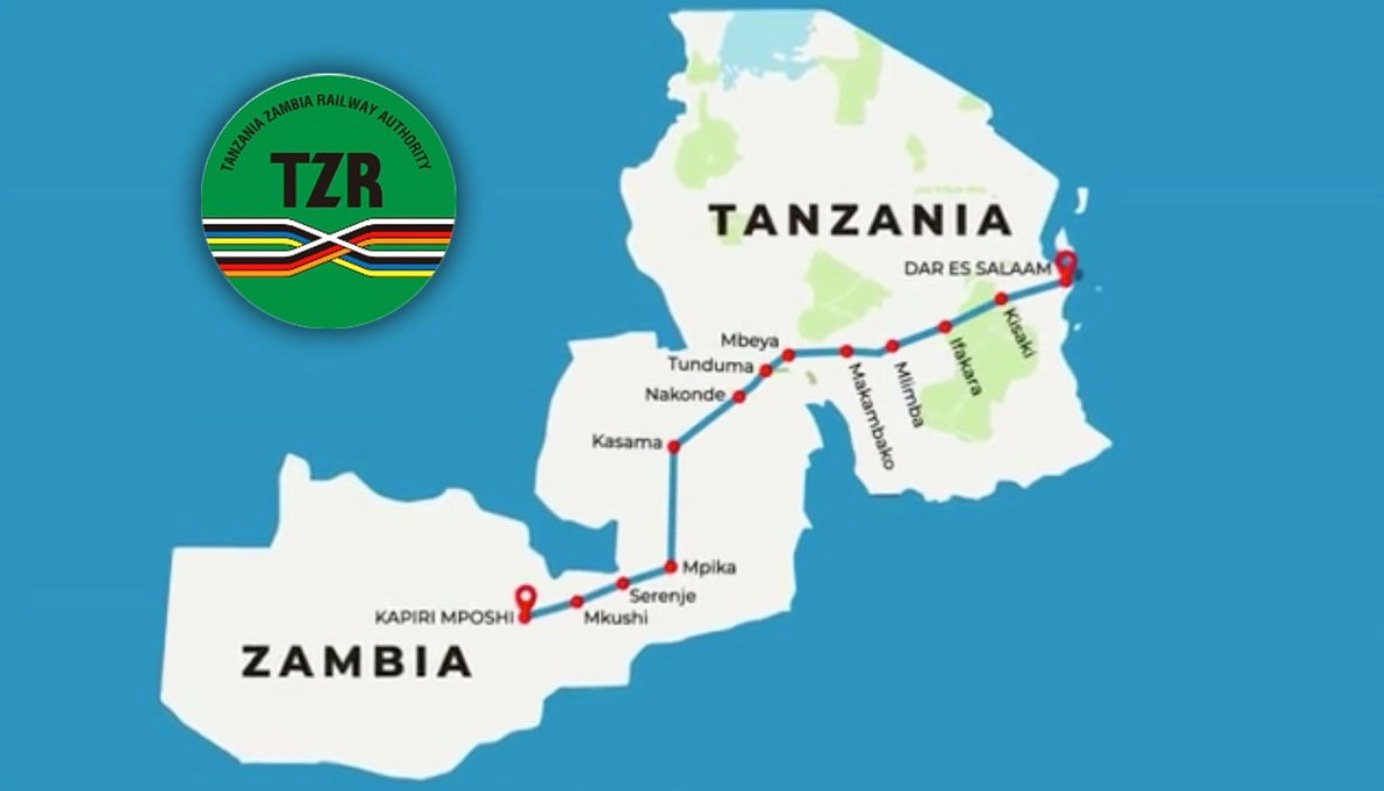
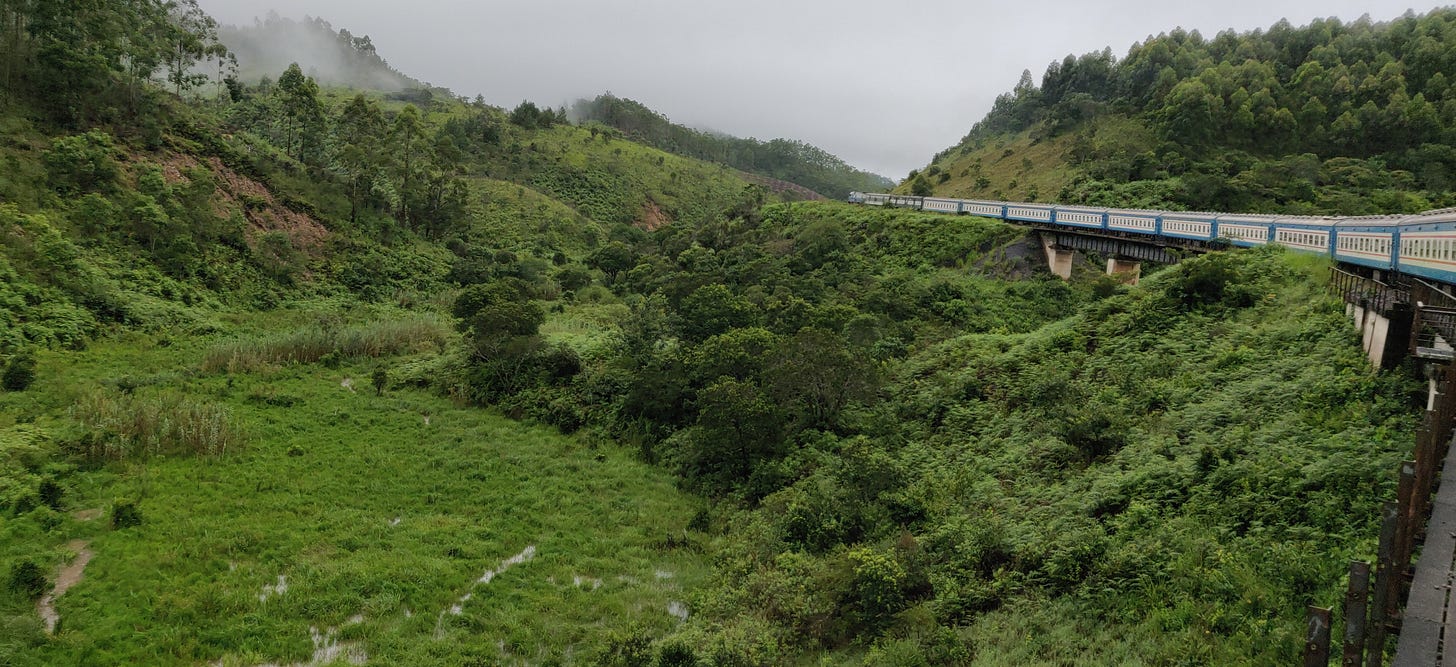
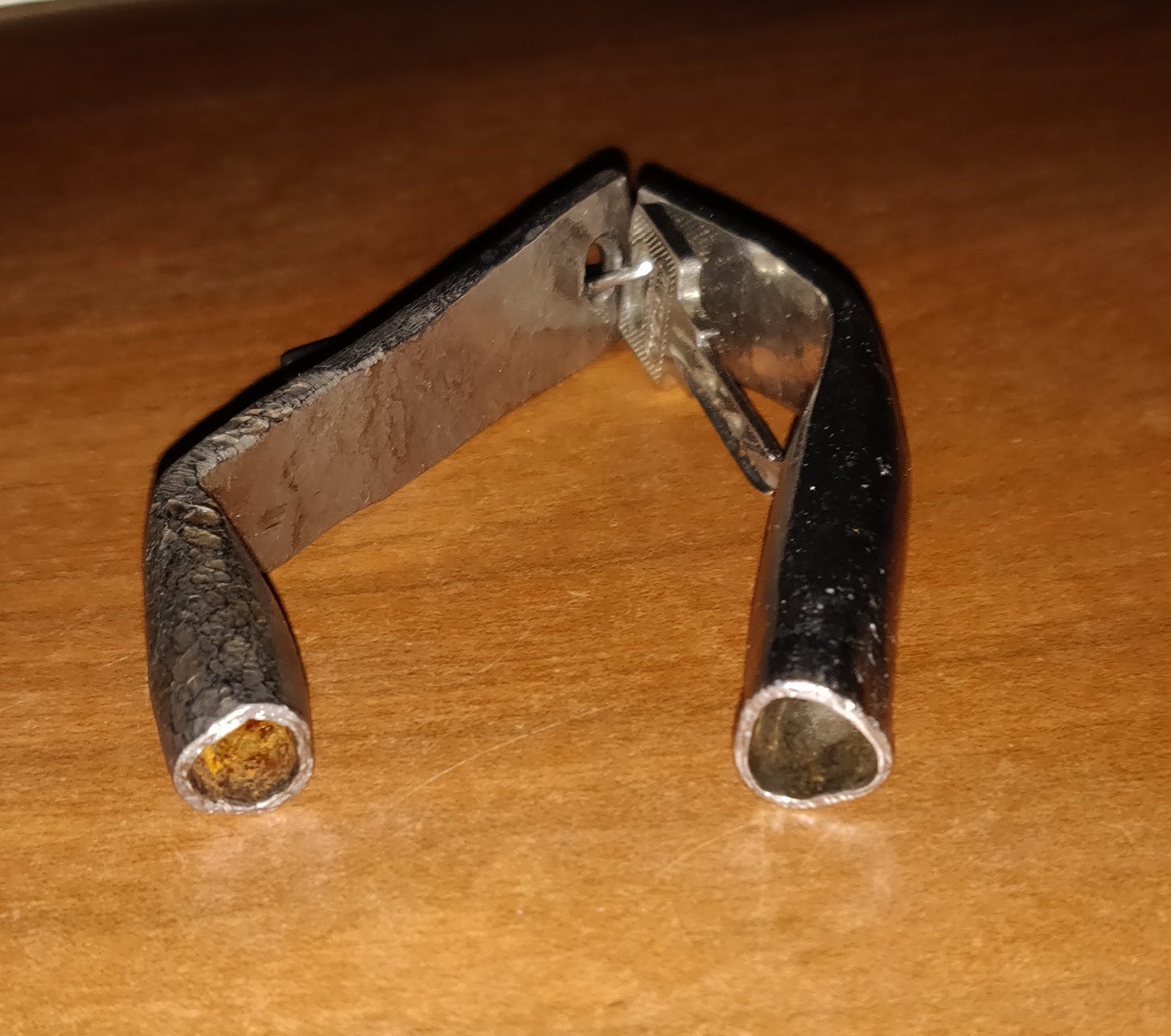
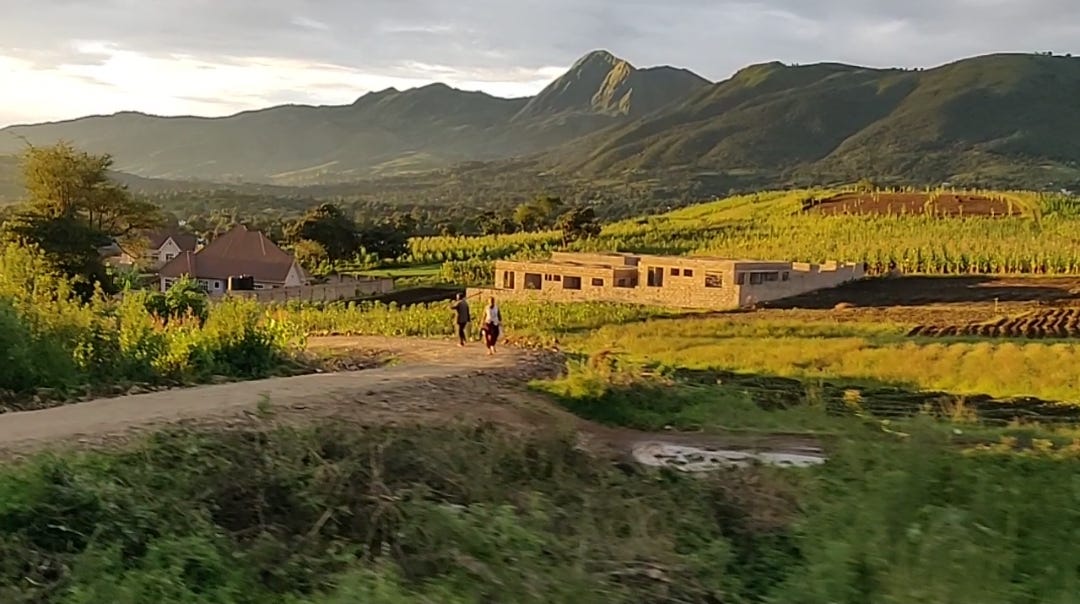

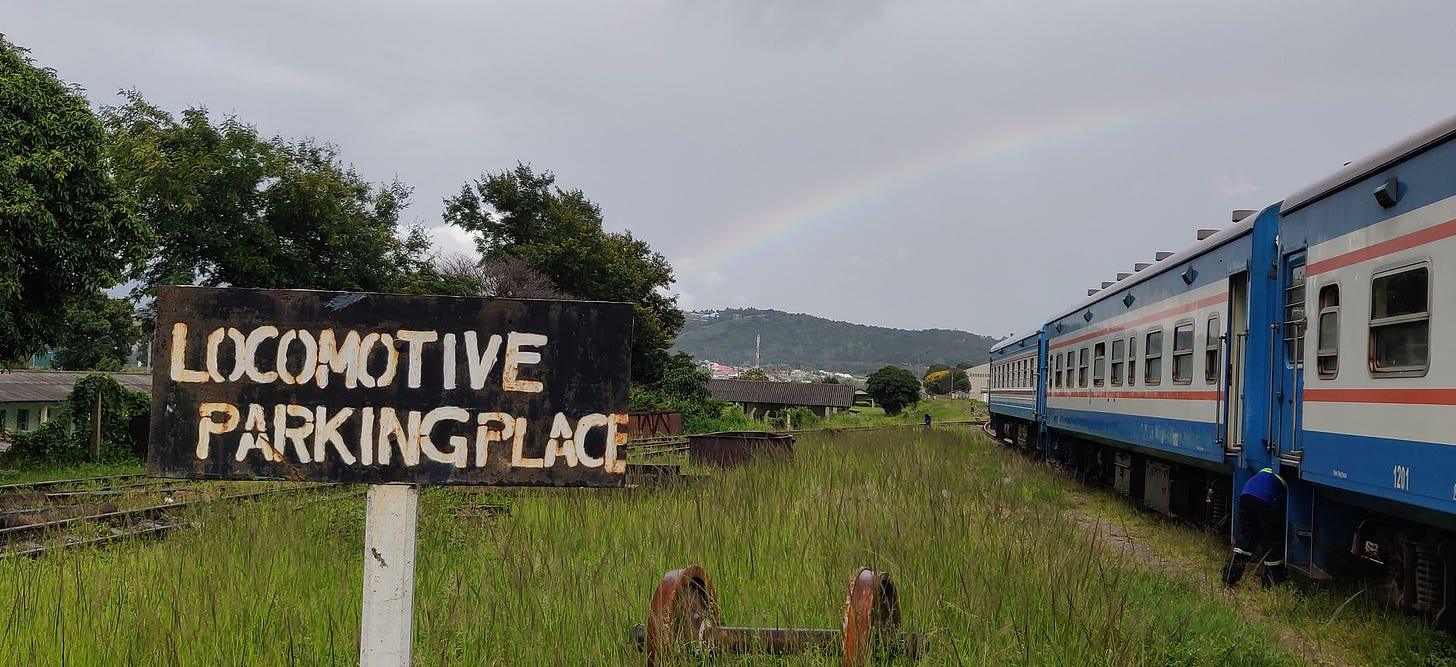
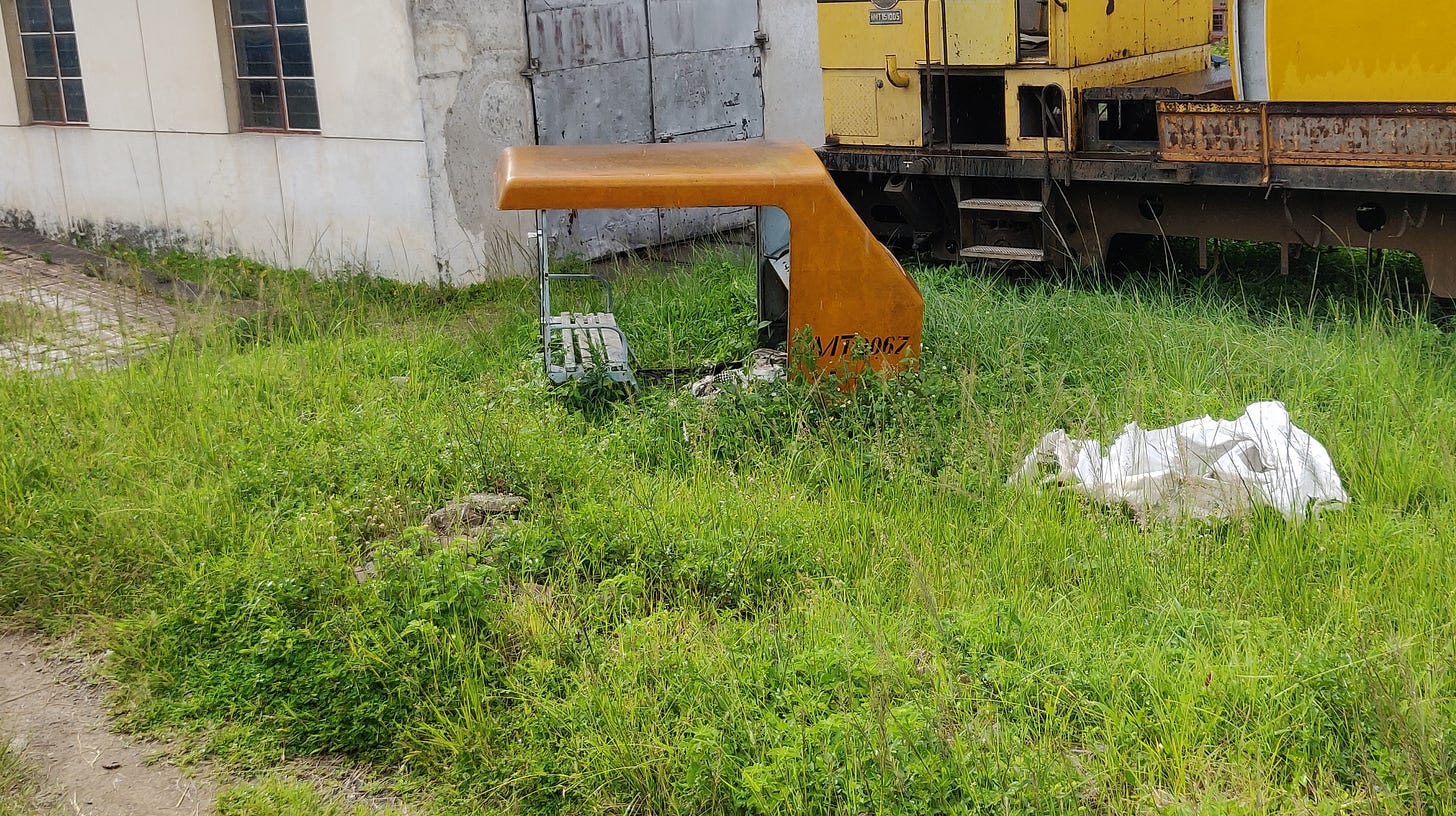
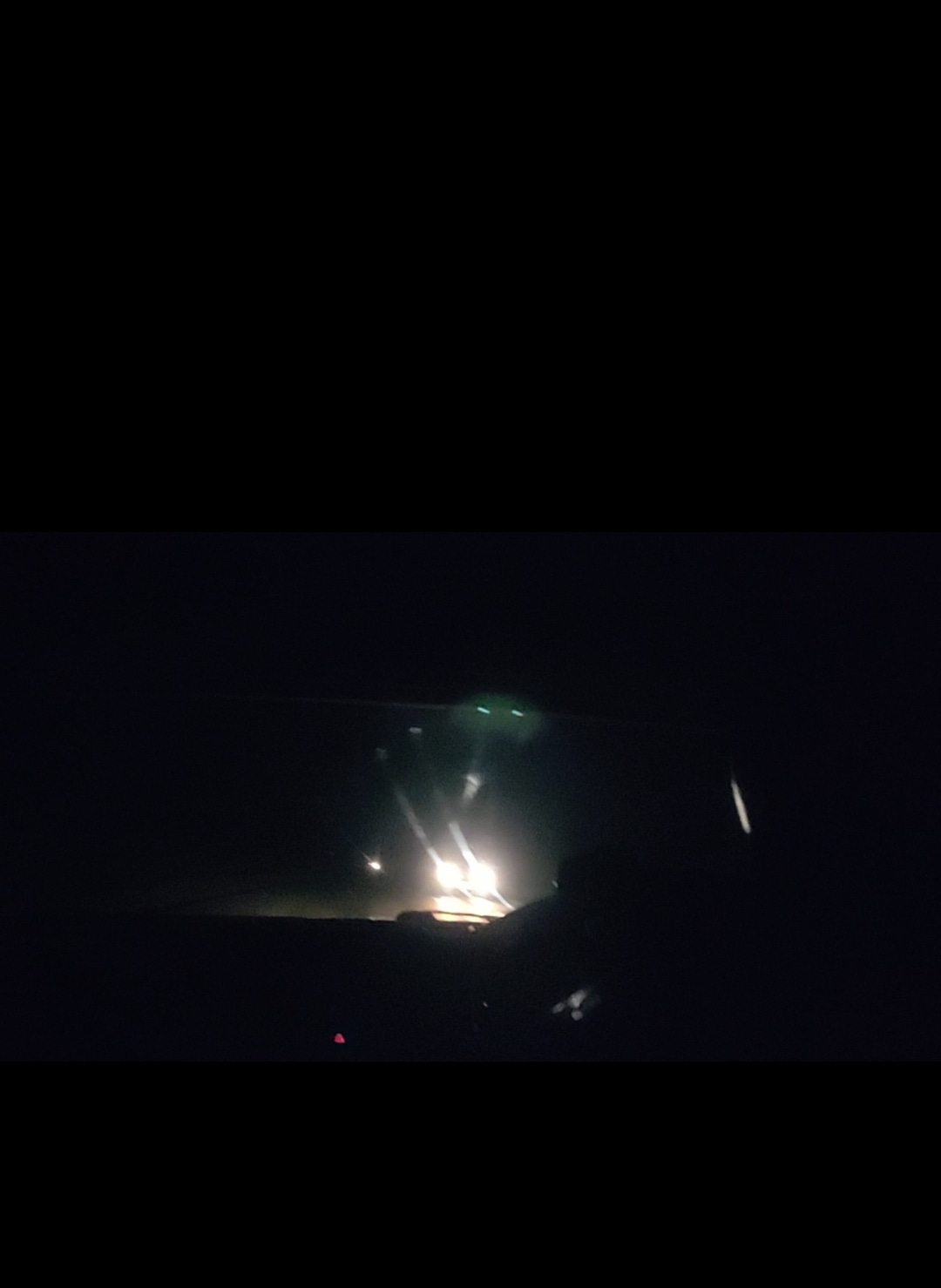
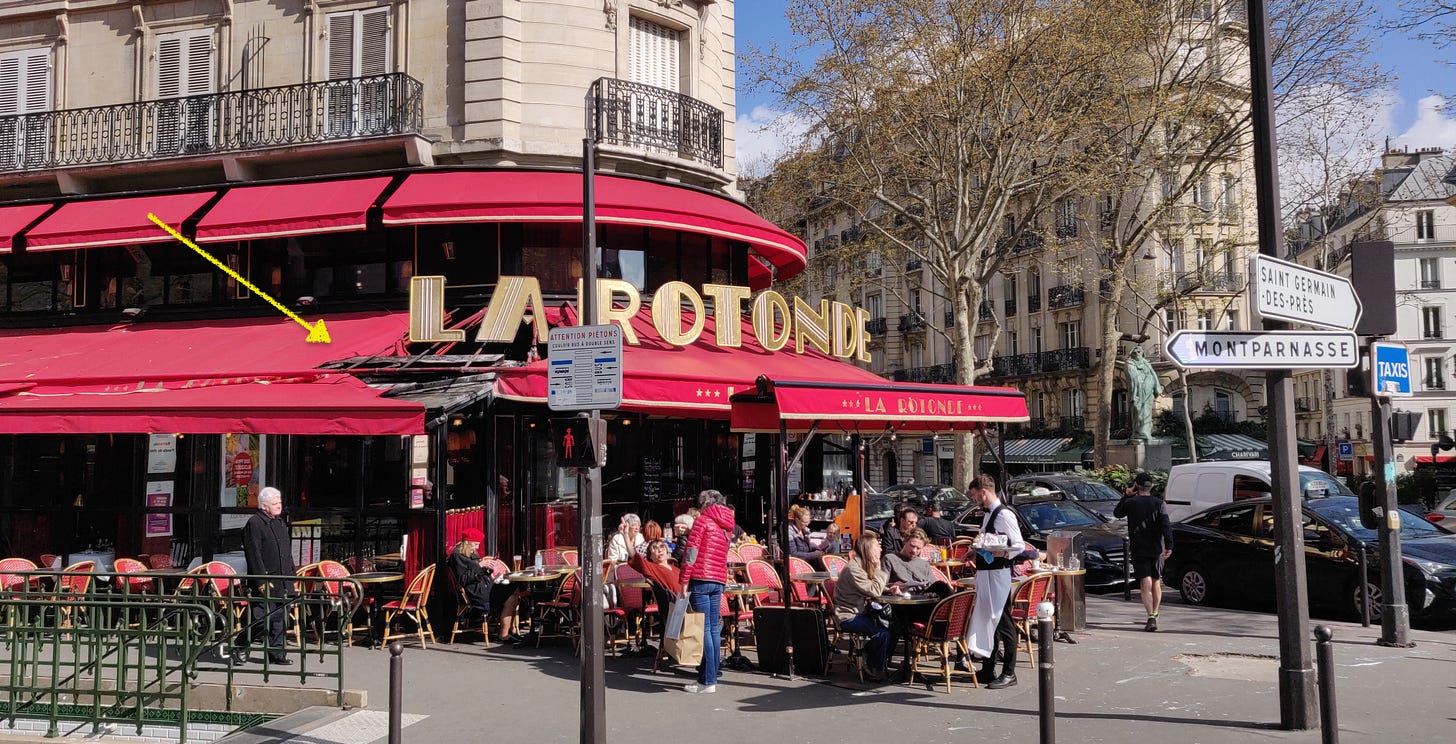

What an adventure! I can relate in a small way from trips to Nicaragua. I did baseball camps for very poor men and young boys. Most lived in tin shacks. Amazingly they loved baseball and played every day weather permitting. My wife was the adventurer in the family and spent a couple summers in India traveling alone in extreme poverty stricken areas. It’s great your wife shares your love to travel. I really enjoy reading this and will spread the word at our 50 year reunion coming up.